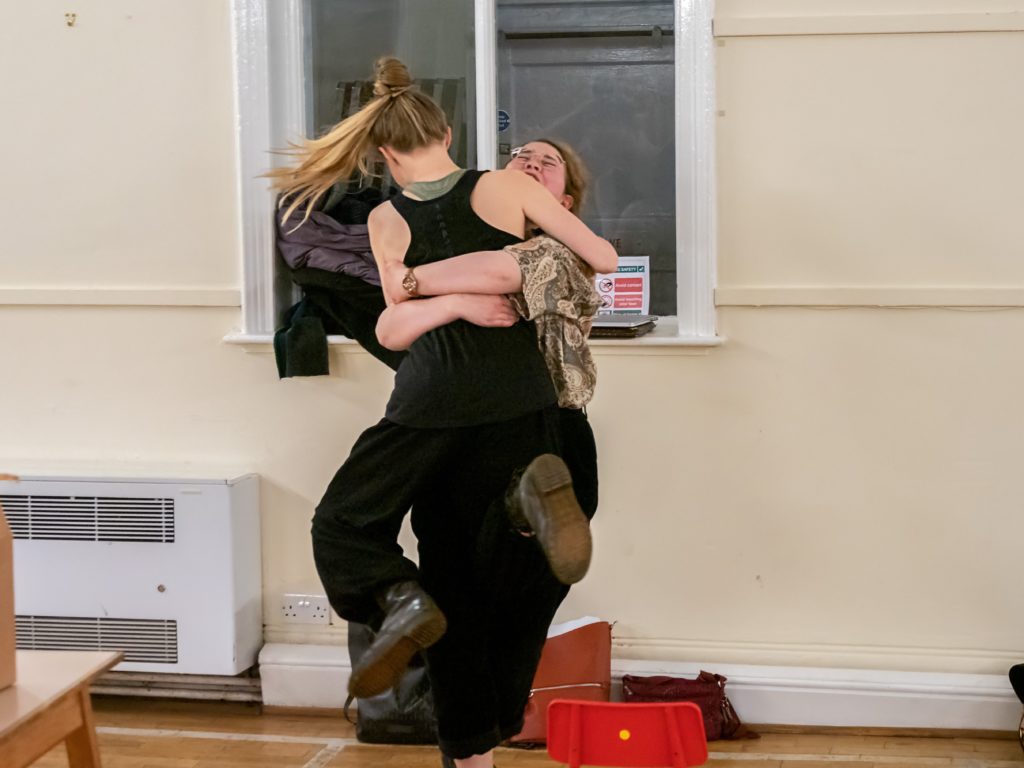
THE curse of Macbeth combined with Lockdown 1’s imposition to put a stop to York Shakespeare Project’s Scottish Play just one week before its March 2020 opening.
Rising like the ghost of Banquo, but sure to be better received, Leo Doulton’s resurrected production will run at Theatre@41, Monkgate, from tomorrow’s open dress rehearsal (26/10/2021) to Saturday as the 37th play in the York charity’s mission to perform all Shakespeare’s known plays in a 20-year span.
Doulton will be casting Emma Scott’s Macbeth into a dystopian future, using a cyberpunk staging to bring to life this dark tale of ambition, murder and supernatural forces.
“It would be impossible to present Macbeth in the same way as when we started work on it before the pandemic,” he says. “We’ve moved from a world where we fear quite specific things to one where we fear more pervasive, invisible ones, such as the pandemic and the climate crisis.”
Here, on the eve of something wicked this way coming, director Leo Doulton answers CharlesHutchPress’s questions.

You had to put your production on hold only a week from opening night in March 2020. How have you gone about building up it up again? Did you start from scratch? Pick up where you left off?
“The image I’m using with the cast and crew is imagining that our 2020 production was a floating city, where light and dark were clearly divided. That city has now crashed, and we’re building something new in the rubble. Some of the rubble can be reused, other bits repurposed into something else, and other parts are from other places entirely.
“More practically, the answer is ‘a bit of both’. I always wanted to make sure that as many of the original cast as were able could re-join us, so that led to a degree of continuity.
“Some of the core ideas, like cyberpunk as a genre of systems beyond mortal understanding, remained useful. But any production has to speak to its audience, and is made by people, all of whom have been changed by the past years.
“Once we knew the show was definitely coming back, I sat down and re-read the play from a blank script, noting which themes, motifs and ideas stood out to me in our new times: uncertainty and innocence, corruption as a constant presence and so on. From that, and discussions with the whole team, came the latest evolution of the show.”
How many cast members and roles have you had to change?
“Five cast members out of 13 and one member of the production team, plus three members of the original cast shifting to new parts. It was especially sad to lose Amanda Dales as The Lady; she was just about to deliver a wonderful performance.
“However, I’m very pleased to have so many new people entering the cast. There’s a unique bond among those of us who entered the pandemic together, but that could easily lead to stagnation were it not for having new thoughts and approaches joining the room, without preconceptions based on the previous iteration of this production.”
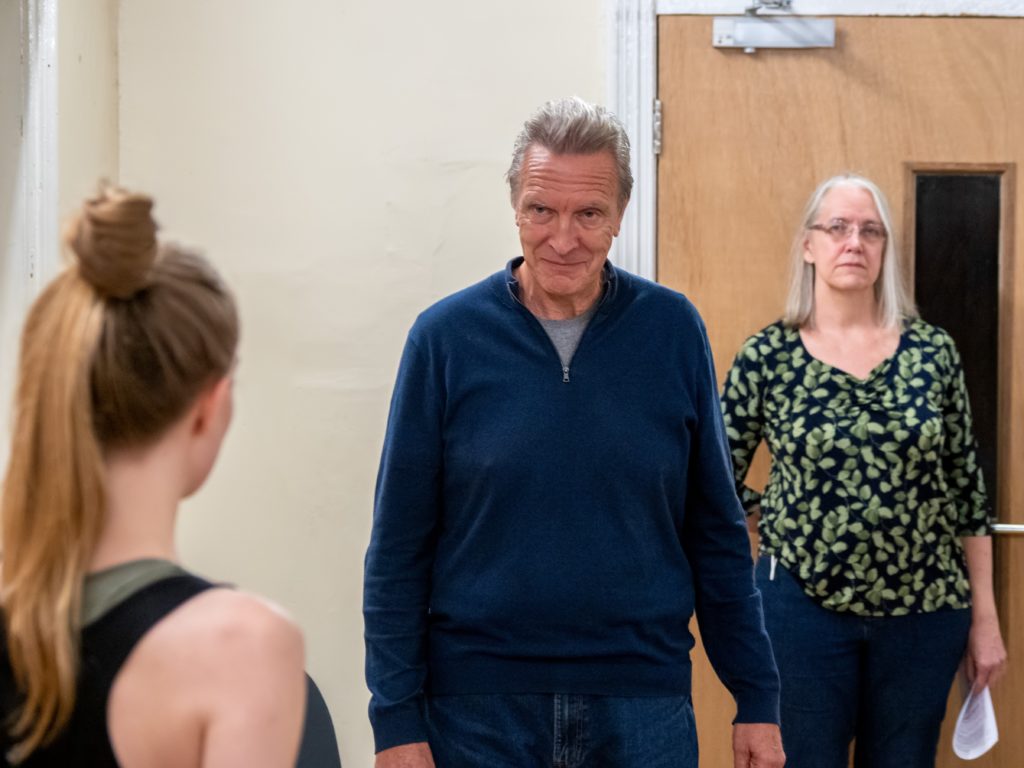
Death and the fear of death is everywhere in Macbeth, as indeed it has been around us all since March 2020 in these pandemic times. How has that had an impact on how you present Macbeth and those who will be watching it?
“Most obviously, the pandemic means that our audience and actors will be socially distanced and we’ll be asking people to wear masks to keep one another safe.
“You know, I’m not sure Macbeth is an especially death-heavy play, certainly not more so than any of Shakespeare’s other tragedies.
“While I’m confident that someone will treat us all to a Covid-Macbeth, to my mind the play is more concerned with the art of being human while alive and mortal: how to act, what legacy we’ll have, and how to understand a world far larger than us. Its deaths are from violence and the supernatural, not disease.
“In many ways, that is the main change caused by the pandemic. Before it, this was a production where we made a world of clearly defined good and evil; where evil was a known thing you could point at.
“Now, we have spent a long time in a world of lingering menace; where something as innocuous as a doorknob might be a deathly threat. People have been isolated. Uncertainty about what will happen next, or who might be infectious, has infiltrated daily life. Everybody has been affected.
“I’m sure that played into a reading where the Macbeths no longer open a door that taints them alone – the whole world is touched by what comes through, and few remain entirely unchanged. The uncertainty of the play’s inhabitants is more important now: none of them, except perhaps the Witches, knows what’s going on. We’ve reshaped the play to draw out those ideas.”
Why are you setting Macbeth in a dystopian cyberpunk future?
“Because I am a colossal nerd!
“More seriously: you’ll be familiar with period productions, productions in modern dress and really abstract conceptual productions.
“Period productions allow the play to sit in the world it’s written for, but demand the audience do advance reading to see beyond Ye Olde Worlde Thingy. Modern dress gives a cultural language that the audience understand but struggle every time someone mentions a sword or castle. Conceptual productions are great at pulling out the ideas of the play, but often lose some of the dramatic effect.
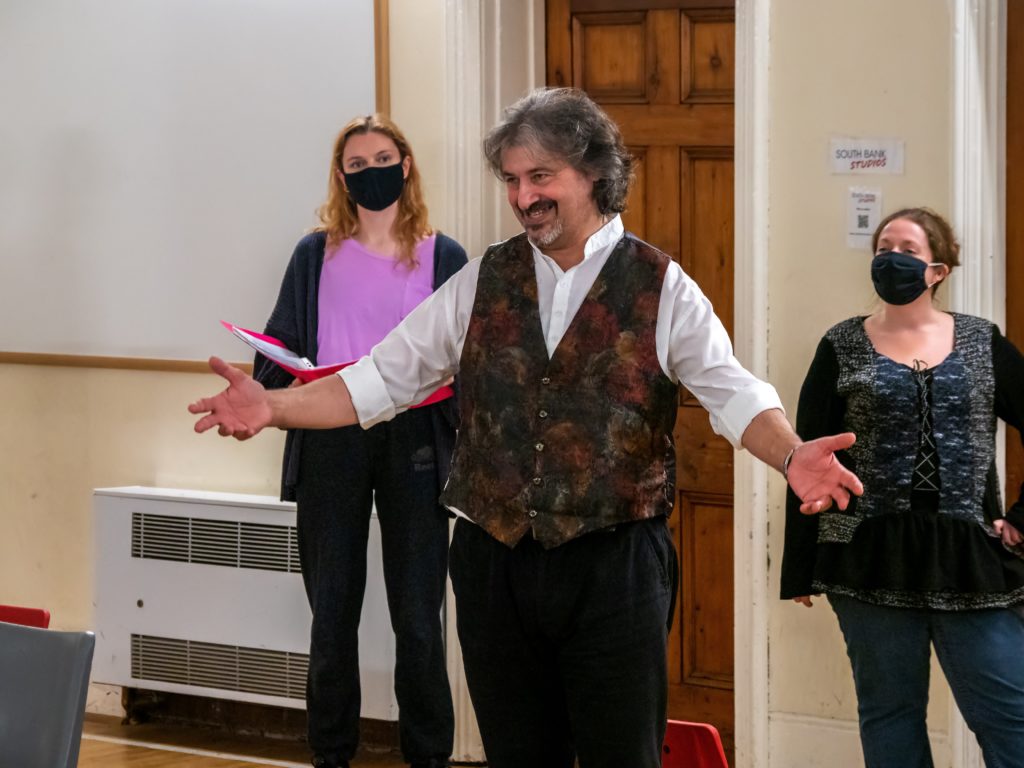
“An imagined future gives us the best of all three: a world built using a cultural language the audience understand, while also supporting the play’s world and bringing out its ideas.
“In this case, cyberpunk is a genre that features individuals in a system far beyond them, in an ever-changing world of illusory realities that is corrupted in many ways. It’s perfect for Macbeth– and because we’d built a new world just for this production, it meant that it was very easy to rebuild that world for 2021 in ways that wouldn’t have been possible with other approaches to the play.
“Cyberpunk is an exciting genre for Macbeth, allowing us to explore Shakespeare’s ideas of lurking corruption, a disintegrating reality and the search for some moral certainty.”
How will that be reflected in Charley Ipsen’s set and costume design?
“Ooh, you’re in for a treat. Once you’ve entered the space, you’ll feel the play’s world surrounding you and creeping in. But I’m not going to spoil it, other than to say that Charley’s made something really rather special: they’ve outdone themselves, especially on a tight budget.”
If one play were going to stop York Shakespeare Project in its tracks, it would always be the Scottish Play. Lo and behold, only two productions from the finish line, the curse of Macbeth meets the curse of Covid! Discuss…
“If I had a quid for every time I’ve heard that joke since March 2020.
“I can’t say I’m superstitious in that way. Though our dramaturge, Dr Kelsey Ridge, did share an interesting theory about why the superstition arose: Macbeth is a play that will almost always bring an audience, which means that it’s often one of the last plays a company will do to try and balance the books before going bankrupt.
“Not sure if it’s true, but it’s a good theory.”
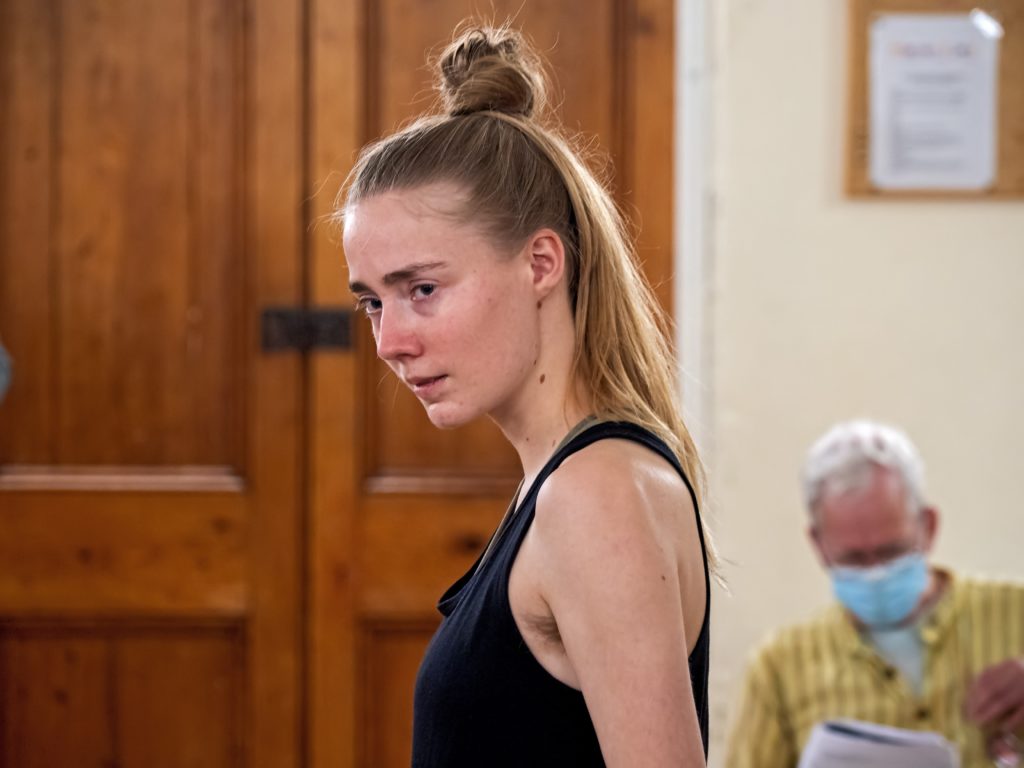
Macbeth is back in the headlines for the James McArdle-Saoirse Ronan coupling in Yael Farber’s staging of The Tragedy Of Macbeth at the Almeida, London. What will the coupling of Emma Scott (she/her) as Macbeth and Nell Frampton (they/them) as The Lady bring to your production?
“I haven’t seen that production, having been in York, but having heard that it runs at three and a half hours, apparently our actors at the very least speak faster! (Our Macbeth lasts for only one hour and 40 minutes with no interval.)
“There are as many ways of playing The Lady and Macbeth as there are actors.
“Spoilers ahead: I think the magic Nell and Emma bring is the tenderness of the initial relationship, followed by its unravelling as both are racked with the poison they invite into the world.
“They’re both young, and in many ways that’s helped give their Macbeths’ relationship interesting flavours of hopefulness, enthusiasm and almost innocence at the start of the play. It’s heart-breaking to see that fall apart.
“Nell was playing Malcolm in 2020, and they’ve certainly shown their range as an actor, creating a Lady with a delicious mix of urgency, love, and craving to become something more.
“Emma’s Macbeth has been cooking since late 2019. There’s power and monstrosity, but underpinning it all an almost boundless humanity, caught up in society, temptation, the need for security, the want of a legacy, and of course the great question: do our actions matter in any moral sense? She’s created something very special.
“The relationship Nell and Emma have crafted between The Lady and Macbeth is remarkably done: one striding ever onwards into corruption, the other trying to step back from something she cannot escape. It’s been great fun rehearsing with them, especially since both are, in their own ways, scholars of early modern European literature and interested in cyberpunk and related genres.”
When did you first see a production of Macbeth and what do you recall of it?
“I remember watching about five minutes of the Ian McKellen/Judi Dench production at school, though beyond it being rather dark I remember very little. It’s now one of my favourite productions.
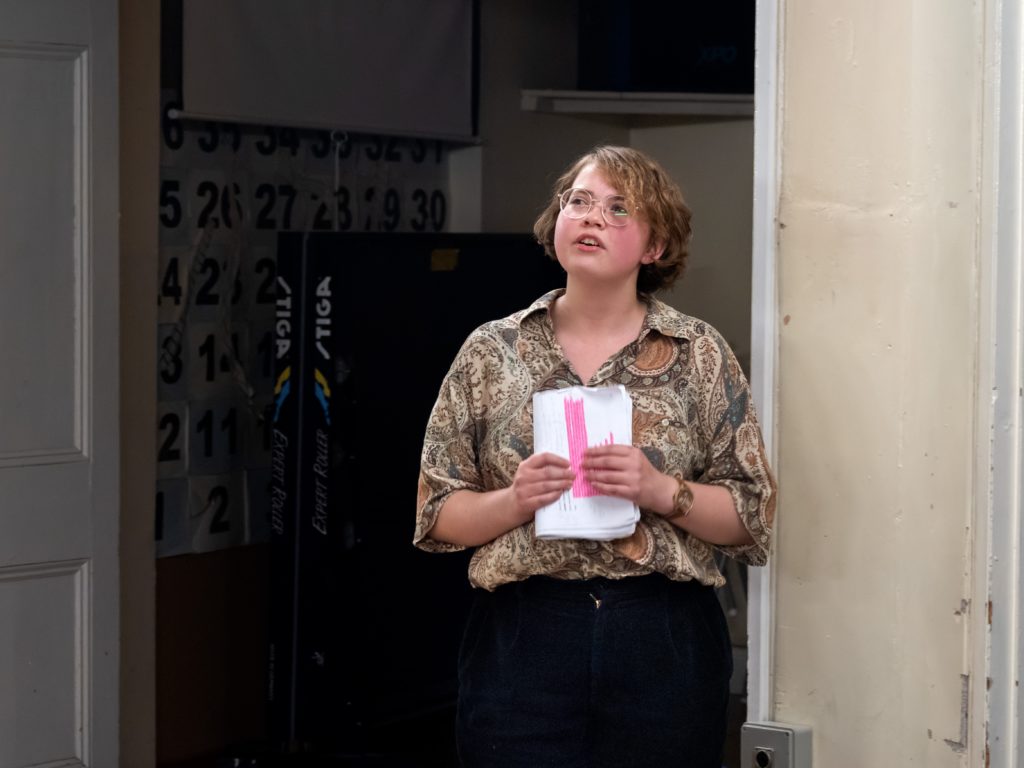
“Like many people, Shakespeare at school was treated more as a matter of translation than as a source of drama and joy.
“It was years later, when I was just starting to discover why people love Shakespeare, that I first saw a full production of Macbeth: a very intense one at the Young Vic, which managed to compress the whole thing into an hour of action, fear and dread.
What makes Macbeth a great play to stage and, equally, a great part to play?
“For the play: I could answer this for hours; this is one of my favourite plays! How compact the play is, the beautiful lines, the range of ways to approach it for each different team, the vastness and intimacy of its ideas about humanity and the world, the way it presents the Macbeths’ ever-worsening bargains and compromises.
“I’d argue that many plays can be great in the right hands, but Macbeth’s range of ideas and vivid archetypal roles makes the task far easier.
“As a role, Macbeth gives the actor a lot of opportunities to make it their own. With several iconic monologues and 30 per cent of the lines, the actor can build a world around their interpretation and always find something new.
“Those monologues are iconic for a reason: Macbeth’s reflections on the right way to live, what we leave behind, and his shifting views on his own moral state give the actor plenty to play with. You start playing someone who is virtuous and worthy and step by step leaves that behind.
What makes Macbeth a difficult play to stage and, equally, a difficult part to play?
“Mostly, people constantly bringing up those who have gone before! It can be very distracting, though I’ve got rather good at ignoring what others have done to try and read it as though I didn’t know its long tradition, and it was a new play.
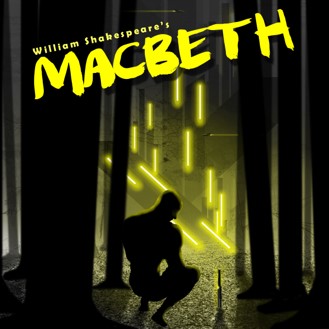
“It’s pleasingly intricate. Even after an extra two years working on it, I haven’t reached the bottom of what it can do, while still being amazed at how clear it all is.
“As a role, it offers the chance to make a genuine masterpiece. But that requires excellence across the board, both in mechanical things like vocal, physical and text-preparation techniques, and in the deeper artistic matters of finding and nurturing an interpretation, working with the rest of the team, and bringing that to life. I do think Emma has risen astoundingly to the challenge.”
How have you found the experience of working on your second YSP production after your 2019 debut?
“Fantastic. I was very pleased to direct Anthony And Cleopatrain 2019, becoming part of a larger mission. Coming back for Macbeth in 2020 was a delight; coming back after a year of lockdowns has been a joy. Working with people who love Shakespeare so much, with such a strong sense of purpose, and a real range of approaches and ideas, is always a pleasure.”
Is there anything else you would like to add?
“The whole team have done amazing work. Even if you’re not normally a Shakespeare person, this is a great play to try: it’s pacy, dives from love to fear to action to the supernatural, and, at the end of the day, only costs £5 if you come on the right day, and we’ll be doing what we can to make it as safe as possible. Hopefully, we’ll see you there!”
York Shakespeare Project in Macbeth, Theatre@41, Monkgate, York, October 26 to 30, 7.30pm and 2.30pm Saturday matinee. SOLD OUT. Box office for returns only: tickets.41monkgate.co.uk.
